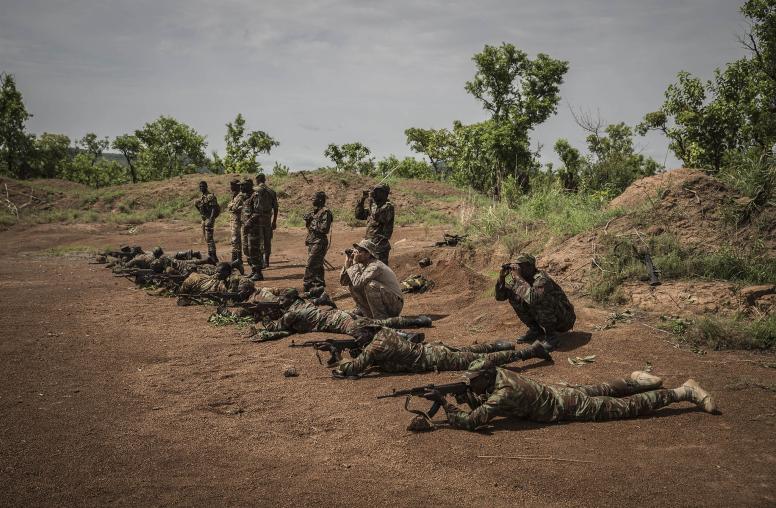Injecting Humanity: Community-Focused Responses for People Exiting Violent Extremist Conflict
Communities worldwide face the challenge of reintegrating people exiting violent extremist conflicts. This report draws on established programs and the recommendations of authoritative bodies to examine community-based approaches to their rehabilitation. Given that criminal justice responses may not always be possible or appropriate, recovery-focused approaches such as resocialization and reconciliation are recommended to minimize risk and foster resilience.

Summary
- Communities in dozens of countries face the challenge of repatriating, rehabilitating, and reintegrating thousands of people who traveled to join ISIS.
- This challenge requires an approach that draws on preventing and countering violent extremism, peacebuilding, and public health practices to address the social, structural, and cognitive drivers of violent extremism.
- Prosecution, though often the preferred response, may not be possible or prudent. Motivations vary dramatically, evidence is difficult to obtain, and many returning persons may be victims.
- Children are victims who require developmentally appropriate psychosocial and other forms of support to address their trauma and resocialize them.
- Violent extremism uniquely affects women and sexual and gender minorities. Rehabilitation and reintegration need to be tailored to reflect their unique experiences, motivations, and challenges without categorically treating women—or people of any gender—based on biases or assumptions.
- Rehabilitation and reintegration strategies help minimize the risk of recidivism. Sustained, positive, inclusive community engagement is needed to address cognitive perceptions of marginalization and dehumanization, which can contribute to violent radicalization and recidivism.
- Rehabilitation has focused primarily on individuals, but the inherently social component to reintegration requires building capacity for families and communities to absorb inclusively returning persons. Opening spaces for prosocial engagement between them and community members can foster social learning and reconciliation, build social cohesion, and strengthen resilience.
About the Report
This report explores the complexity surrounding the rehabilitation and reintegration of people exiting violent extremist conflict, with an emphasis on building capacity for community responses. Based on a series of regional workshops held under the auspices of the Global Counterterrorism Forum, the report was supported by the Center for Applied Conflict Transformation at the United States Institute of Peace.
About the Author
Chris Bosley is senior program officer for countering violent extremism (CVE) at the United States Institute of Peace, where he focuses on reconciliation between communities and people disengaging from violent extremism. Following a ten-year career as an intelligence officer in the US Navy, he served as a senior adviser for counterterrorism and CVE in the Office of the Director of National Intelligence.



